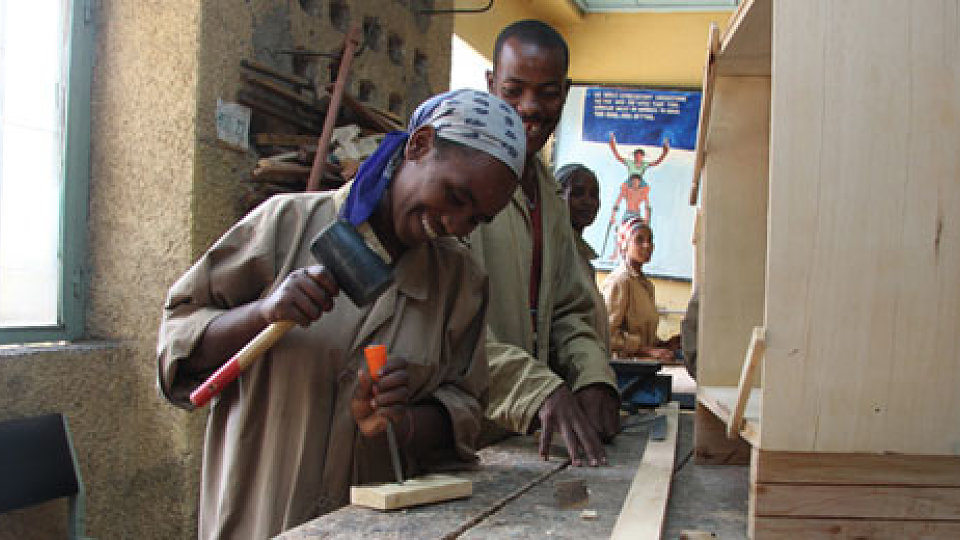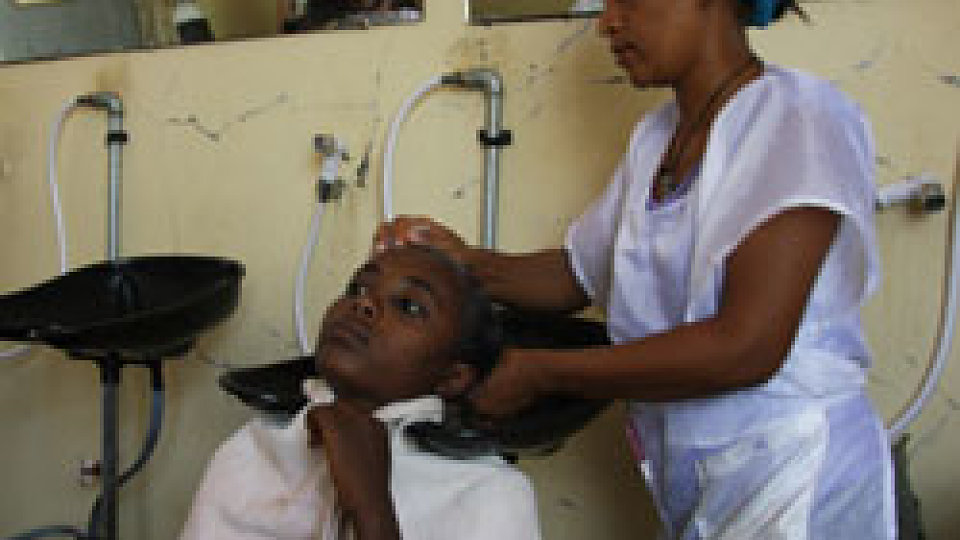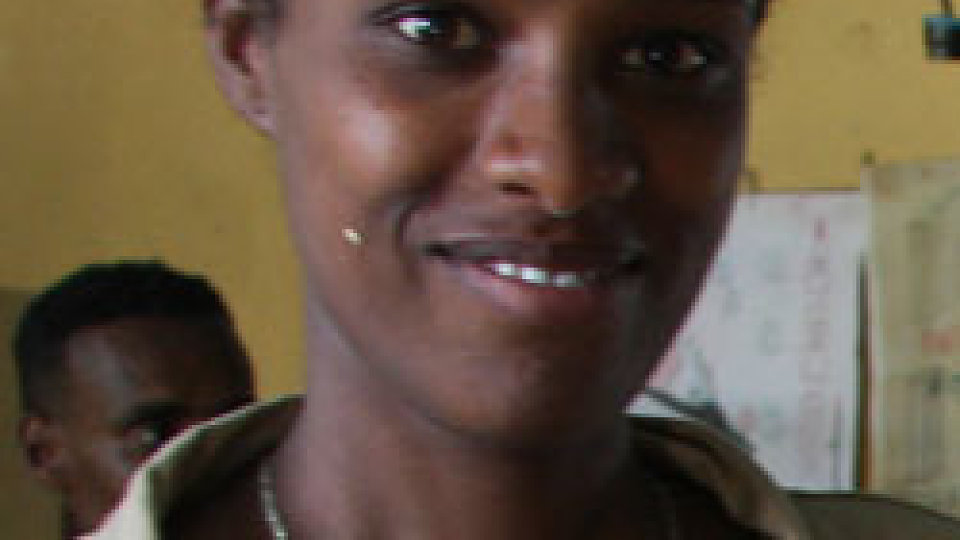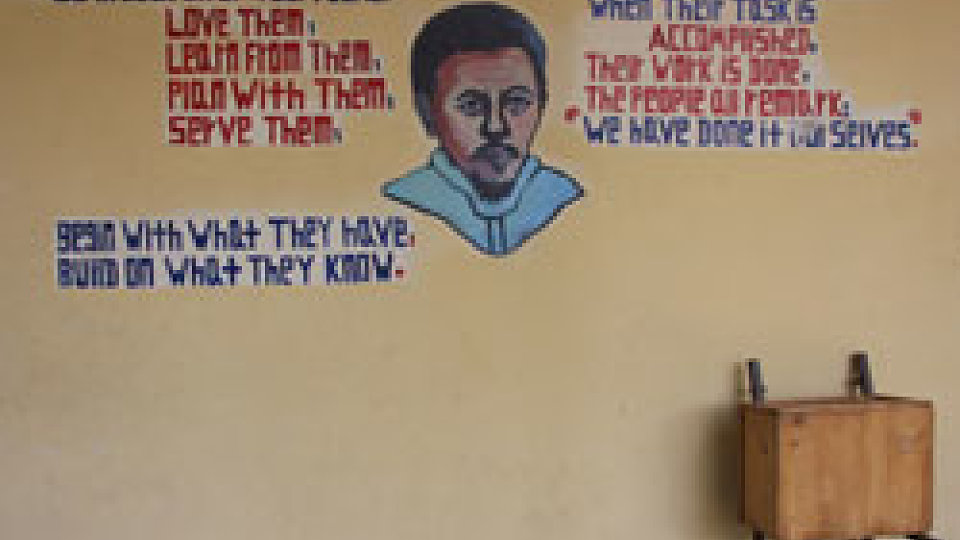Change 10
By Jenny Pope
About 100 kilometers east of Addis Ababa is the city of Nazaret, the third largest city in Ethiopia. More than 1 million citizens live here, including an estimated 7,000 teenage prostitutes. This is the reason Buckner/Bright Hope started a job training program here three years ago, and the reason why so many young women’s lives are being transformed.
Today I saw more than 125 young adults, ages 16 – 28, being trained in unique job skills – wood working, welding, plumbing, hair dressing, and masonry. They train for eight months and then spend the ninth month doing on-the-job training, working for a business for free. It’s this “real-world” model Getahun Tesema, Buckner/Bright Hope director, says is critical to the program’s success.
“They must get to know the real world,” he says. “They must know the market, understand the industry. This experience will help them to negotiate a good salary and give them good exposure to the real world.”
Many of the students end up being hired by the business they trained with. Others go on to start their own business with financial help from Buckner/Bright Hope.
I spent a good amount of time today interviewing the beneficiaries of this program, many of whom are orphans or live in severe poverty. They all have a certain amount of hope, and optimism, about their future. Many have already scouted out the market and are confident their line of business will help them provide for their family.
One young lady, Ejigayehu Asseya, is studying wood working. At 20 years old, she is responsible for providing for herself and her sister. They are both orphans.
“I was suffering a lot to get income for myself and my sister,” she explained in Amharic. “I have so many dreams to change the life. After completing the program, I will have a chance to go to university. The money I make working wood will help pay for my school.”
I asked Ejigayehu what her life would be like if she hadn’t been given this opportunity, and she immediately became quiet. She looked down at her hands, up at me, and down again. She spoke in Amharic, which I do not understand, and yet – I knew exactly what she was saying.
“I would be somewhere awful, doing things to make money, bad things,” she said. “But here I have already been rescued. And I am happy.”
Nigussio Chequalla, 28, is another young man benefiting from the wood working training. Nigussio was born with a physical disability that prevents him from walking or running well. He graduated from high school six years ago, but was unable to find work because of his condition.
“I have no father and no mother. They have already died,” he said. He went on to explain that he lives with his extended family, who for the past six years have treated him as a slave.
“I was abused,” he said in Amharic. “I was made to work very, very hard in the house without any pay. If I wasn’t given this chance, I would be destitute. There was no one to help me. But here it is like close family.”
According to the staff, now that Nigussio is learning a trade at the Buckner/Bright Hope training center, his extended family is treating him much better in hopes that he will one day take care of them financially.
Birtukan Taffa, 23, is learning the skill of plumbing. Birtukan has nine sisters and one brother, and she is responsible for providing for all of them. Her mother is dead and her father is “retired” and cannot work.
“I have a plan to support my sisters and brother when I complete this program,” she explained. Before entering the program, she was working as a day laborer and taking work wherever she could get it. Now, she is certain she wants to work as a plumber because she has already scouted the market and knows that there is a great need for plumbers in Nazaret.
Birtukan gave me an encouraging message which I promised I would share with others.
She told me that we should continue to do this program, because it is a good program that helps a lot of people. She said that there are many people who are in a worse situation than she is, and they need help, too.
As I think about what she said, I can’t help but think she’s talking about her own sisters – nine new faces the streets of Nazaret might claim. I am hopeful that with Birtukan’s training, she will be able to not only provide for her sisters and brother, but serve as a role model. And in doing so, the power of this program can become exponential. As she is empowered to provide, she will empower her family to do the same.
Ten new productive members of the Nazaret workforce, thanks to one life-changing program. Yes, Birtukan, I think this is something we should continue to do.
Jenny Pope, Buckner publications editor, traveled to Ethiopia in June 2009. This is taken from her blog entry during the trip at blog.itsyourmission.com.










Add a Comment